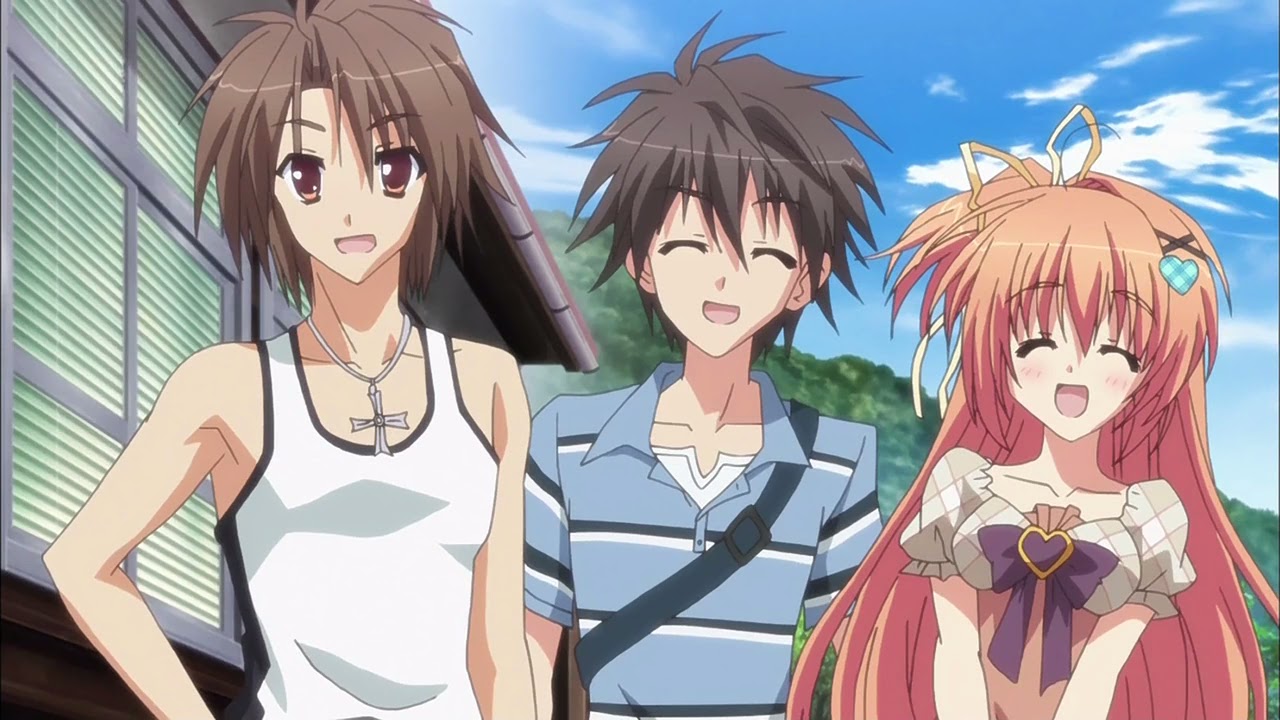Strangely Conventional Ending for Hoshizora: A Review
With the conclusion of Hoshizora, one of the most peculiar shows of the year, we are presented with an unexpectedly straightforward finale. The series closes with a predictable romantic resolution, aligning perfectly with the pairing that was anticipated from the very beginning. Unfortunately, this finale lacks the quirkiness and perversion that made the show intriguing, leaving a slightly disappointing taste.
Kazuma’s Choice: Ui as the Final Love Interest
As anticipated, Kazuma ultimately ends up with Ui, and personally, I am content with this outcome. The romance in Hoshizora never truly developed enough to captivate me, so the specific pairing didn’t hold much significance. However, it does raise questions about the lack of substantial character development for Ui throughout the series. While Ibuki, Madoka, and even Hina received more attention and growth, Ui’s presence remained superficial, ultimately feeling overlooked.
The Finale: The Summer Festival and Confessions
The entire finale centers around the summer festival, adding an additional layer of complexity to Miko Madoka’s already complicated situation. In a clever callback to the race from episode 5, Kazuma discovers that he must serve as the town’s Ogami for the festival, being the highest-ranking boy from the race. Tsumugi, on the other hand, is chosen as the Megami, and both of them play crucial roles in the Matsuri events. Tradition dictates that the Ogami and Megami confess their feelings for each other during the festival.
As the audience becomes increasingly aware of Kazuma and Ui’s growing connection, Tsumugi takes it upon herself to feign illness, forcing Ui to step in as the Megami for the Matsuri. This sets the stage for a poignant confession scene where Kazuma and Ui face each other from opposite sides of a bridge on their respective Mikoshi. It is during this moment that Kazuma openly expresses his feelings, followed by a somewhat awkward reciprocation from Ui. And just like that, their fates are sealed.
A Conventional Conclusion to an Unconventional Series
Regrettably, the finale of Hoshizora adheres to conventions rather than embracing the show’s overall unconventionality. With the exception of a couple of hormone-fueled teenagers exploiting a sacred Shinto festival for their summer confession, the episode lacks any untoward or risqué elements. The absence of the naughty antics that made Hoshizora entertaining, even in its blissfully nonsensical moments, feels like a missed opportunity. It makes one wonder about the purpose of the Ayumu subplot, aside from providing sporadic moments of odd humor.
Nevertheless, Hoshizora was a series that could be enjoyed with one’s brain on autopilot, and there is nothing inherently wrong with that. Despite being based on a dating sim, the show surprisingly offered little in the way of romance until its final episodes. Its charm lay in its ability to be silly, foolish, and innocently provocative. It possessed a resolute dedication to its own peculiar brand of weirdness, which, in its own way, was quite admirable. Although I wouldn’t call it a brilliant series by any means, it was consistently enjoyable, with each episode delivering a decent mix of laughter and groans.
A Wish for more Perversion in the Ending
Perhaps my only desire for Hoshizora is that it had concluded in the same audacious and perverted manner in which it unfolded. Ultimately, what will remain in the memories of viewers long after the show has ended won’t be the lukewarm romance between Kazuma and Ui, but rather the twisted humor and genuinely perplexing tone prevalent in the initial eight or nine episodes. Sensing this, the director leaves us with one last disconcerting image of Ayumu as an eyecatch. If only the rest of the finale had followed suit and embraced the show’s uniquely strange essence.
Conclusion
In conclusion, Hoshizora concludes its run on a disappointingly conventional note, leaving behind the eccentricities that made it stand out. The romance, despite its central role, lacked the depth and development necessary for it to truly resonate with audiences. However, the series managed to entertain with its silly and innocent brand of humor, delivering a combination of laughs and groans throughout its run. It is a show that can be enjoyed without requiring much intellectual investment, making it perfect for casual viewing.
Frequently Asked Questions
Q: Was Hoshizora a typical romance anime?
A: No, Hoshizora deviated from the typical romance anime formula by incorporating elements of quirkiness, humor, and an unconventional narrative structure.
Q: Did the character development in Hoshizora live up to expectations?
A: While some characters received more development than others, the overall character growth in Hoshizora was somewhat lacking, particularly concerning the main love interest, Ui.
Q: How did the summer festival tie into the finale of Hoshizora?
A: The summer festival served as a backdrop for the finale, with Kazuma’s role as the town’s Ogami and the tradition of confession between the Ogami and Megami adding emotional weight to the climax of the series.
Q: Were there any unexpected twists or surprises in the finale?
A: Unfortunately, the finale of Hoshizora did not offer many surprises, following a predictable path and failing to provide the twists that the show initially promised.
Q: Would you recommend Hoshizora to viewers seeking a unique romance anime?
A: While Hoshizora may not fulfill all expectations as a traditional romance anime, its quirks and unconventional moments make it worth considering for those seeking a different take on the genre.
Q: How does the conclusion of Hoshizora compare to its earlier episodes?
A: The ending of Hoshizora deviates from the bizarre and perplexing tone of its earlier episodes, resulting in an ending that feels disappointingly conventional in comparison.

